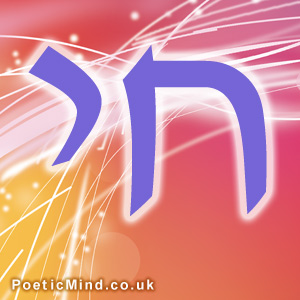
God makes Himself unseen while He is always present in our life. We now go to explore our own lives, and ask: is there a concept in Judaism of ‘past life’?
Yes; very much so. Nowadays it is considered that most of us are reincarnation גילגולים ‘Gilgulim’ of previous lives; some of the many lives. According to some, our generation is just before The Mashiah המשיח is due to come. We are a ‘Gilgulim’ of the generation who left Egypt יציאת מצריים ‘Yetziat Mizrayim’. We are in the same state as the generation that went into Israel from Egypt, Mizrayim. We are the soul, the Neshama נשמה, of those people who left then to Israel.
So, very much so, we believe in ‘Gilgul’ and ‘Neshama’, past lives, and that the souls have to come back into the world that they came many times over. Some of us may not be consciously aware of it. But the ‘Neshama’ has gone though many, many beings beforehand and it’s a cumulative effect. It’s not just what we’re doing in our lives now, it’s an accumulation of what we’ve done in our previous ‘Gilgulim’, to complete the process that we’re going through now.
How does a soul decide whereupon to be, where to incarnate in this life?
God decides that. That’s something in the Heavens, Shamayim שמיים. God decides which ‘Neshama’, soul, is going to come down. Sometimes that can be something which is decreed upon because the soul needs ‘Tikun’, a cleansing. The ‘Neshama’ perhaps did not do it in a previous life, and so it is given a chance to do it in this life.
People are coming back into the world as a test for them to overcome, ‘this was a test you were given because you did not achieve something in your previous ‘Gligul’ and this is what you need to do in this life.’ It is a divine providence. That’s חטא הברוא, the errors of the created which can now be rectified.
We believe that God understands what we need, and He leads us to where we need be. There are sparks that govern us which we need to claim and reveal. We need to redeem them in the place and time that God chooses. These are the things that God leads us in the way that we need to go. That’s part of the divine providence.
The divine providence enables us השגחה, someone who is looking after us so that we always have the ability to do just what is needed. But to actually do it, we have a ‘Bhira’, a choice, free will. Nobody is forcing us; we have to make those choices. First we have to realise that where we are at is where we are meant to be.
The opportunities which present themselves to us are sent to us. But whether we take those opportunities; whether we fulfil them, that is something we’re given a choice over, a ‘Bhira’. We’re not coerced. On the contrary, God assures us that there are always equally and balanced things for us to choose from – ‘Ze Leumat Ze Asa Elokim’. Everything that God made he made balanced on the side of good and the side of bad, so that we can make the choice ourselves. There’s choice between good and bad.
Of course, that gets us into the whole subject of bad. Bad is there, not for the purpose that there should be intrinsic bad, but that there should be a choice to allow us to choose the good.
22 July 2012.
© Gil Dekel. My thanks to my teachers.


 - Reading with Natalie, book here...
- Reading with Natalie, book here...